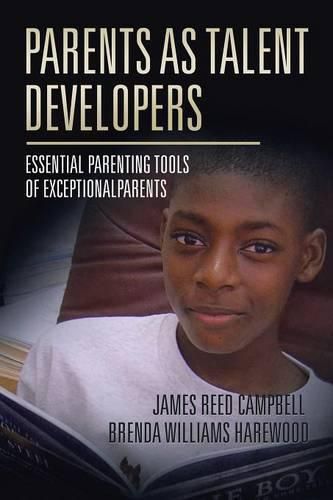Readings Newsletter
Become a Readings Member to make your shopping experience even easier.
Sign in or sign up for free!
You’re not far away from qualifying for FREE standard shipping within Australia
You’ve qualified for FREE standard shipping within Australia
The cart is loading…






This title is printed to order. This book may have been self-published. If so, we cannot guarantee the quality of the content. In the main most books will have gone through the editing process however some may not. We therefore suggest that you be aware of this before ordering this book. If in doubt check either the author or publisher’s details as we are unable to accept any returns unless they are faulty. Please contact us if you have any questions.
Our purpose in writing this book is to give minority parents (African American, Latino) the tools they need to help their children perform much better in school. The content of the book comes from discovering actual parental practices used by minority families whose children excel at school. Our research teams went to public schools in minority neighborhoods in New York City and Long Island to find high-achieving minority children. We then visited their families and interviewed the parents and children separately to uncover what the parents did to warrant such high achievement. It is these minority parents who are the instructors in this book. We have talked with them, wrote down their stories, and extracted the parental practices that we call "kernels." Kernels are seeds in the plant world. The kernels on an ear of corn are the seeds needed to grow the next generation of corn. We use this term in the sense that each parental practice that we highlight in this book should be viewed as a seed for a child's academic growth. Our research teams highlight ninety-six kernels and embed many more practices in the text that bolster academic achievement. It is a resource that minority parents can use to give their children the opportunities that result from an emphasis on academics. The book is also designed for educators to use in their everyday interactions with minority and nonminority parents.
$9.00 standard shipping within Australia
FREE standard shipping within Australia for orders over $100.00
Express & International shipping calculated at checkout
This title is printed to order. This book may have been self-published. If so, we cannot guarantee the quality of the content. In the main most books will have gone through the editing process however some may not. We therefore suggest that you be aware of this before ordering this book. If in doubt check either the author or publisher’s details as we are unable to accept any returns unless they are faulty. Please contact us if you have any questions.
Our purpose in writing this book is to give minority parents (African American, Latino) the tools they need to help their children perform much better in school. The content of the book comes from discovering actual parental practices used by minority families whose children excel at school. Our research teams went to public schools in minority neighborhoods in New York City and Long Island to find high-achieving minority children. We then visited their families and interviewed the parents and children separately to uncover what the parents did to warrant such high achievement. It is these minority parents who are the instructors in this book. We have talked with them, wrote down their stories, and extracted the parental practices that we call "kernels." Kernels are seeds in the plant world. The kernels on an ear of corn are the seeds needed to grow the next generation of corn. We use this term in the sense that each parental practice that we highlight in this book should be viewed as a seed for a child's academic growth. Our research teams highlight ninety-six kernels and embed many more practices in the text that bolster academic achievement. It is a resource that minority parents can use to give their children the opportunities that result from an emphasis on academics. The book is also designed for educators to use in their everyday interactions with minority and nonminority parents.